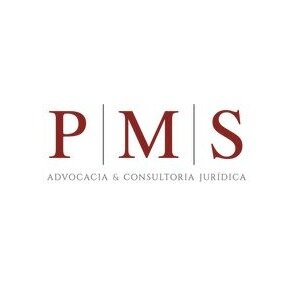Best Military Law Lawyers in Porto
Share your needs with us, get contacted by law firms.
Free. Takes 2 min.
List of the best lawyers in Porto, Portugal
About Military Law in Porto, Portugal
Military Law in Portugal governs the conduct of members of the Portuguese Armed Forces. It encompasses a range of legal issues including military justice, personnel administration, and operational conduct. Porto, as one of the major cities in Portugal, follows the national framework for military law, which is designed to ensure discipline, efficiency, and justice within the military forces. The military justice system operates separately from the civilian justice system and is subject to its own set of laws and procedures.
Why You May Need a Lawyer
There are several situations in which you might require legal assistance with military law matters. These include defending against military charges, understanding your rights and obligations as a member of the armed forces, navigating military benefits or pensions, dealing with administrative issues such as promotions or demotions, and seeking redress for grievances. Legal counsel can provide crucial guidance and representation to ensure that your rights are protected within the military legal system.
Local Laws Overview
Key aspects of military law in Porto, Portugal, include the Military Disciplinary Regulations, which outline acceptable conduct for service members, and the Military Justice Code, which covers procedures for military trials and appeals. Additionally, the Constitution of Portugal establishes civilian oversight of the military and outlines the rights and duties of service members. Special consideration is given to ensuring that military operations adhere to international law and humanitarian principles.
Frequently Asked Questions
What is military law?
Military law is a legal system that applies to members of the armed forces. It includes laws, regulations, and procedures that govern military conduct, discipline, and justice.
How does military law differ from civilian law?
Military law operates under a separate legal framework with its own courts, procedures, and legal principles. It focuses on maintaining discipline and order among service members, whereas civilian law generally applies to the broader population.
What are my rights as a member of the armed forces in Portugal?
Members of the Portuguese Armed Forces have rights similar to civilians, but with limitations specific to military law. Rights include fair trial, due process, and protection against unlawful actions. There are also specific regulations concerning military service, duty assignments, and promotions.
Can a military lawyer represent me in civilian court?
Military lawyers are specialized in military law, but they may not be permitted to represent you in civilian courts unless they are also certified to practice civilian law. It is important to verify a lawyer’s qualifications for the appropriate legal representation.
How can I report misconduct within the military?
Reports of misconduct can be made through official military channels, such as a superior officer or the military police. There are also protections in place for whistleblowers to report issues safely and anonymously.
What is the process for appealing a military court decision?
The process for appeal typically involves submitting a formal request to a higher military court. Each case is different, and legal counsel can help guide you through the specific appeal procedures.
Are there special legal considerations for international military operations?
Yes, international operations must comply with international law, including treaties and agreements Portugal is a signatory to, as well as rules of engagement that ensure lawful conduct during military missions.
How do military pensions and benefits work in Portugal?
Military pensions and benefits are governed by specific regulations that outline eligibility, amounts, and conditions. Legal assistance can help clarify your entitlements and any potential disputes.
Can reservists and part-time service members access military legal services?
Reservists and part-time service members have access to military legal services for issues related to their military duties, although access may differ from that of full-time service members.
What is the role of the President of the Republic in military law?
The President of Portugal serves as the Commander-in-Chief of the Armed Forces and has powers to oversee military law matters, including the appointment of military judges and ratification of military codes.
Additional Resources
The following resources can be useful for those seeking more information or assistance with military law in Portugal:
- Ministry of National Defense - provides oversight for military affairs
- Portuguese Armed Forces General Staff - for official information and assistance
- Military Judicial Office - for inquiries related to military justice procedures
Next Steps
If you need legal assistance in military law, it is advisable to seek out a lawyer with expertise in this field. Reach out to legal aid services specializing in military law to discuss your specific situation. Ensure you have all relevant documents ready for your consultation. It is also beneficial to understand your rights and responsibilities under military law to effectively communicate your needs to your legal representative. Always check the lawyer’s credentials and experience in military law before seeking their counsel.
Lawzana helps you find the best lawyers and law firms in Porto through a curated and pre-screened list of qualified legal professionals. Our platform offers rankings and detailed profiles of attorneys and law firms, allowing you to compare based on practice areas, including Military Law, experience, and client feedback.
Each profile includes a description of the firm's areas of practice, client reviews, team members and partners, year of establishment, spoken languages, office locations, contact information, social media presence, and any published articles or resources. Most firms on our platform speak English and are experienced in both local and international legal matters.
Get a quote from top-rated law firms in Porto, Portugal — quickly, securely, and without unnecessary hassle.
Disclaimer:
The information provided on this page is for general informational purposes only and does not constitute legal advice. While we strive to ensure the accuracy and relevance of the content, legal information may change over time, and interpretations of the law can vary. You should always consult with a qualified legal professional for advice specific to your situation.
We disclaim all liability for actions taken or not taken based on the content of this page. If you believe any information is incorrect or outdated, please contact us, and we will review and update it where appropriate.









